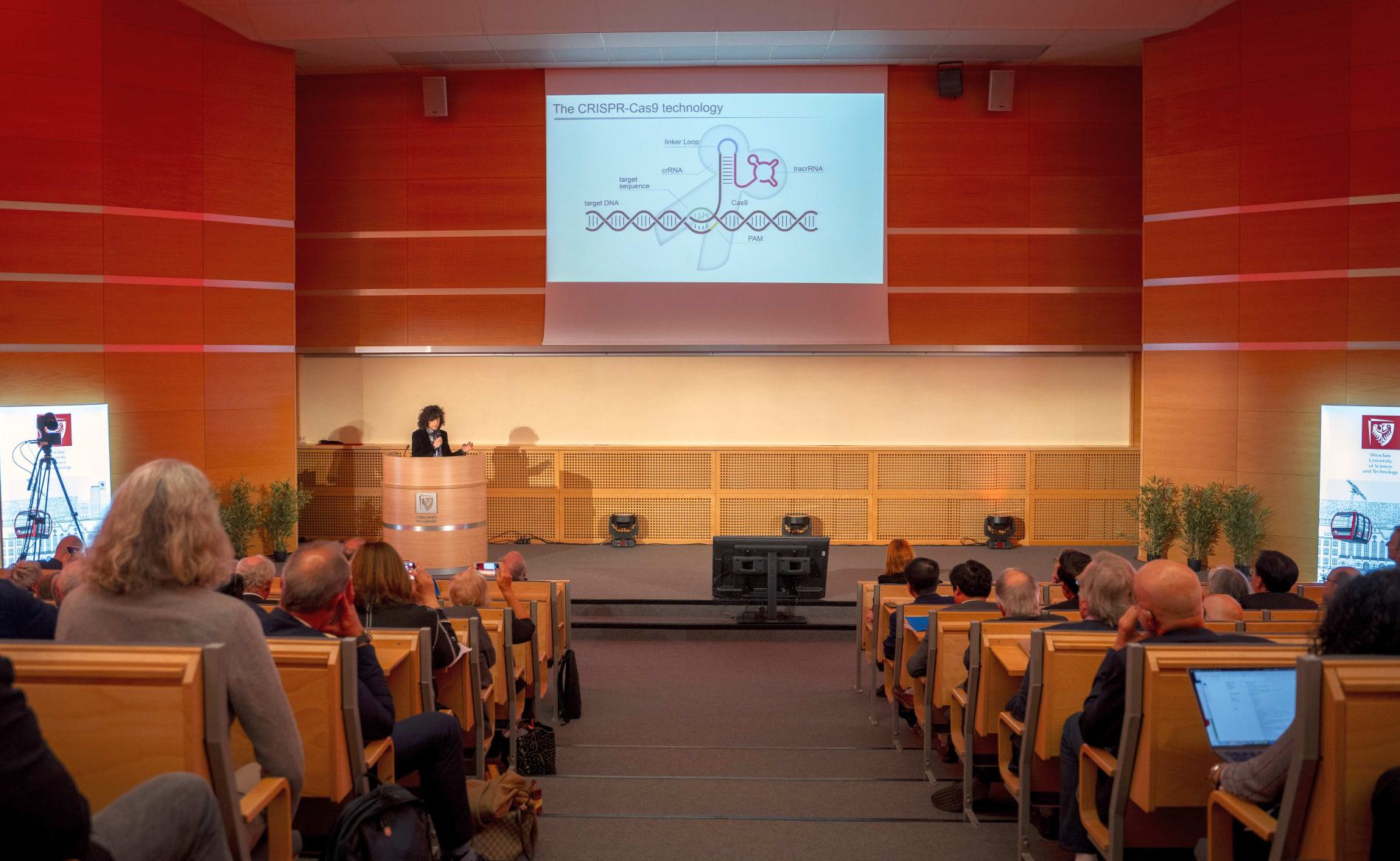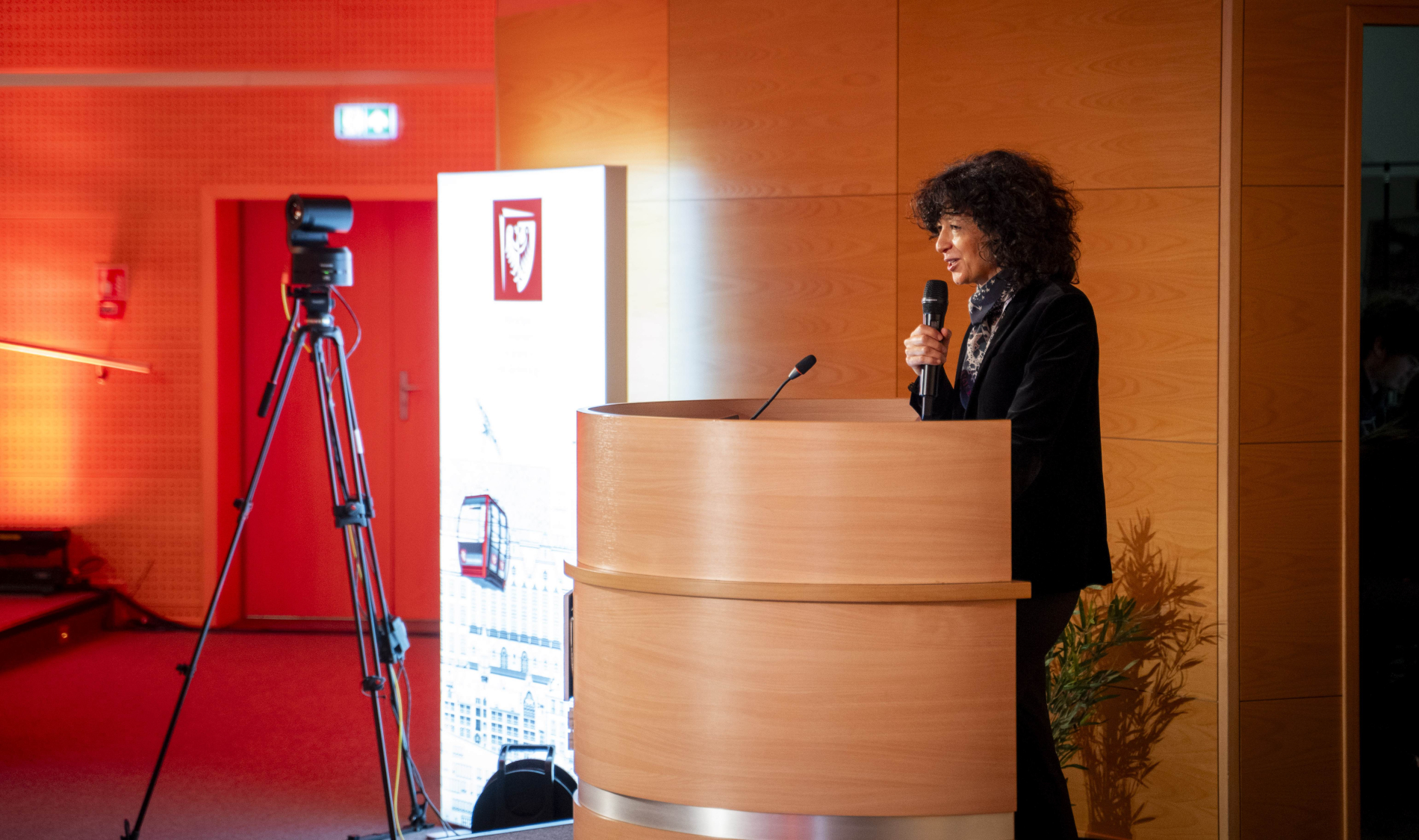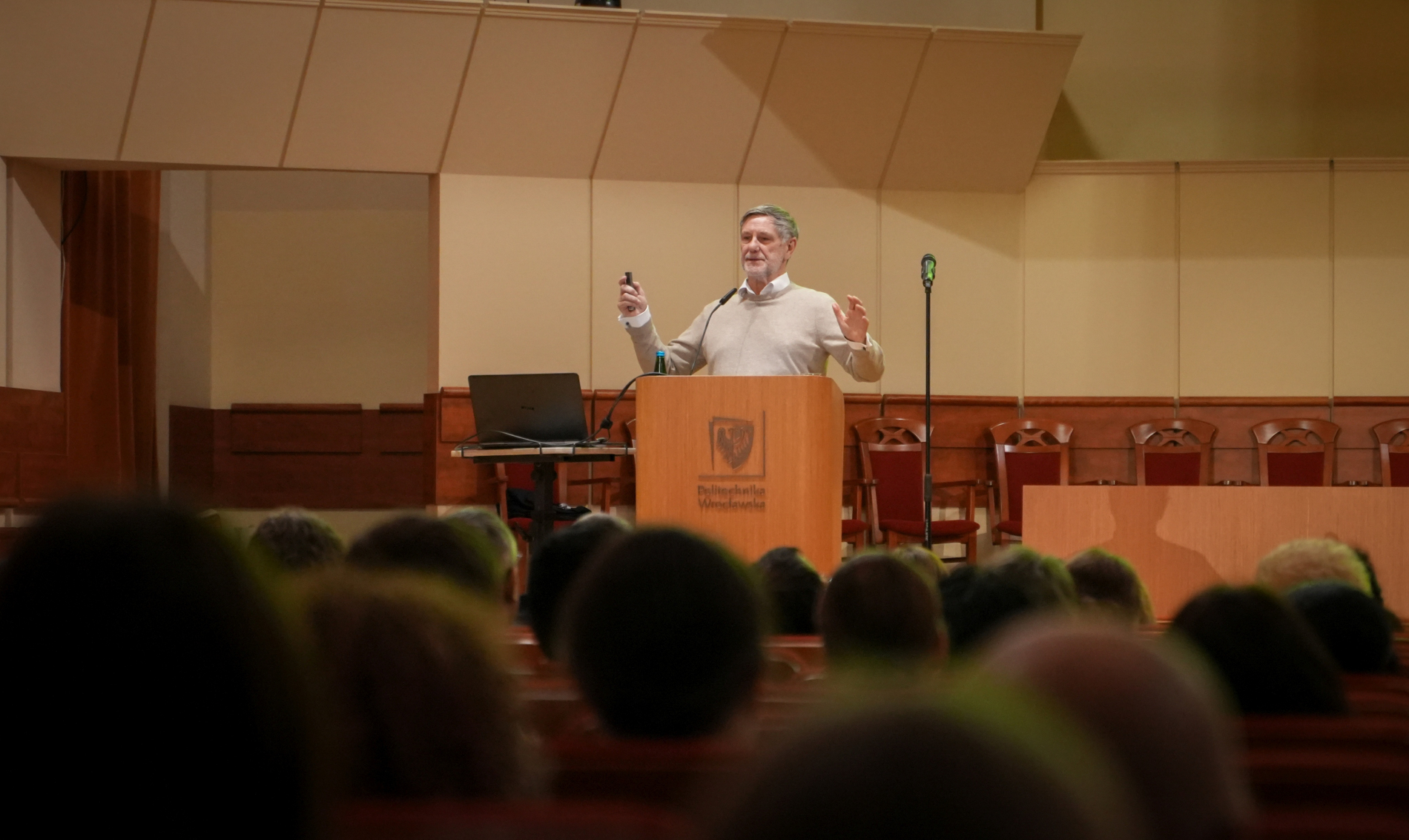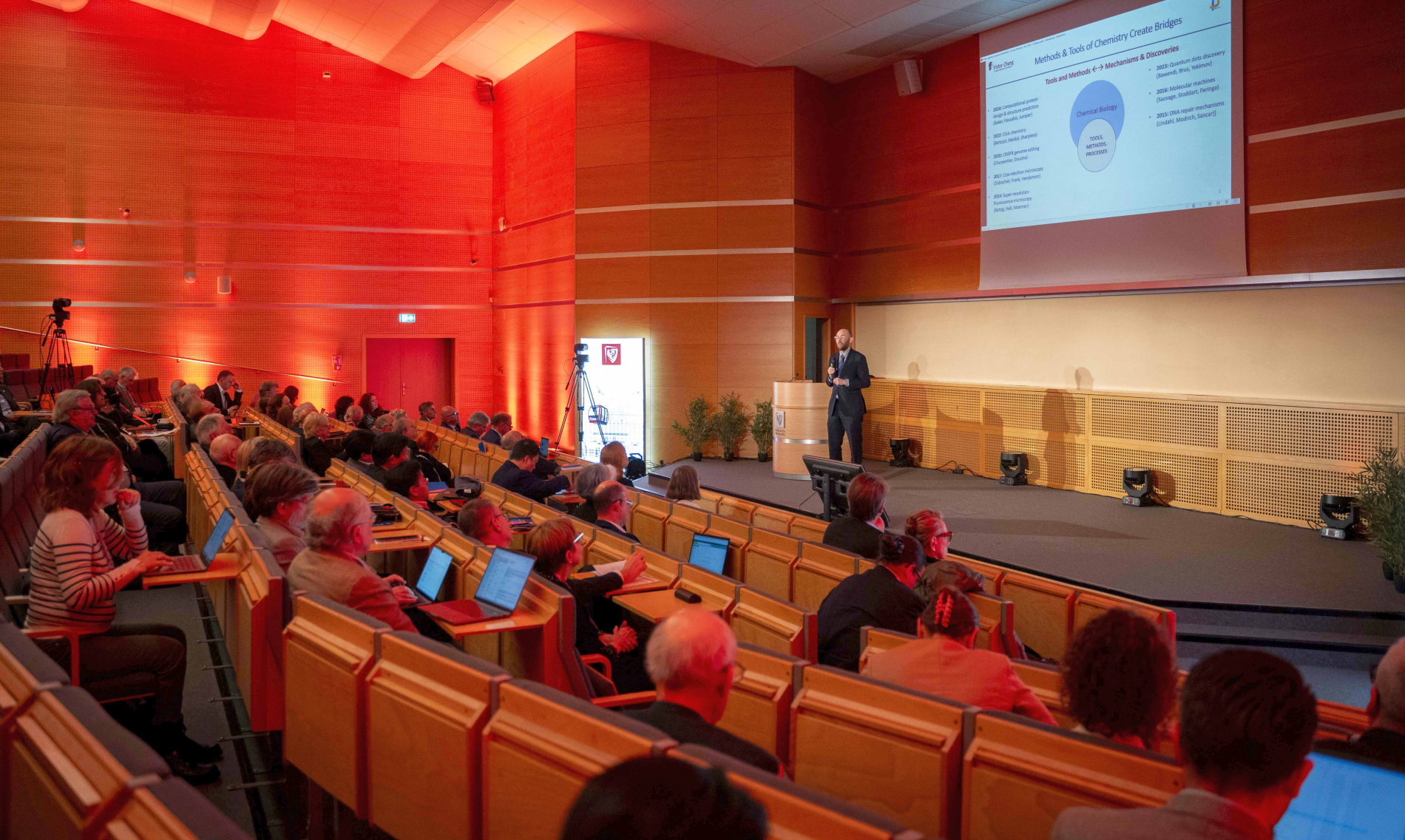YOUR BROWSER IS OUT-OF-DATE.
We have detected that you are using an outdated browser. Our service may not work properly for you. We recommend upgrading or switching to another browser.
Date: 27.11.2024 Category: conferences/seminars/lectures, general news, international cooperation, science/research/innovation
 Outstanding scientists from around the world are taking part in the Building Bridges conference in Wrocław. This important and prestigious event is being hosted by the Wrocław University of Science and Technology for the first time. It is organised by the Academia Europaea Wrocław Knowledge Hub, headed by the Rector of the Wrocław Tech, Professor Arkadiusz Wójs.
Outstanding scientists from around the world are taking part in the Building Bridges conference in Wrocław. This important and prestigious event is being hosted by the Wrocław University of Science and Technology for the first time. It is organised by the Academia Europaea Wrocław Knowledge Hub, headed by the Rector of the Wrocław Tech, Professor Arkadiusz Wójs.
Building Bridges is an annual scientific conference organised by Academia Europaea (AE), a non-governmental organisation that aims to promote research as well as advise governments and international organisations on scientific matters.
The three-day event (26-28 November) features a total of 21 plenary sessions and two panel discussions for the nearly 200 AE-affiliated scientists who have come to Wrocław this year. They address the most relevant topics in the humanities, social sciences, natural sciences and sciences today.
- We are honoured and proud that such an important conference, of such significance, is taking place here at Wrocław University of Science and Technology - said Professor Arkadiusz Wójs at the opening of the conference. - I believe that the vibrant atmosphere of our university, which is a thriving research centre, as well as the city itself, full of innovative solutions and companies, will make this a time of inspiring and important discussions for everyone.

The Academy Europaea was founded in 1988 on the initiative of, among others, the British Academy of Sciences, the Royal Society. It has its headquarters in London and is chaired by Prof. Marja Makarow, an eminent Finnish biochemist and molecular biologist from the University of Helsinki, who pointed out that recent years have been very testing for us, especially with regard to the conflicts that have been taking place.
- Our task is to think together about what we can do in times of crisis. How to make the best use of our knowledge and advise decision-makers, both at European and global level,’ said Prof. Marja Makarow, President of Academia Europaea.
Today, the AE brings together more than five thousand eminent specialists in medicine, chemistry, physics, mathematics, economics, humanities and social sciences, including 83 Nobel Prize winners and laureates.
Six scientists from the Wrocław Tech also belong to the organisation: Prof Arkadiusz Wójs, Prof Katarzyna Chojnacka, Prof Tadeusz Luty, Prof Cezary Madryas, Prof Rafał Weron and Prof Joanna Rymaszewska.
One of the highlights of the event was a lecture by Professor Emmanuelle Charpentier, winner of the 2020 Nobel Prize in Chemistry. She received it together with Jennifer A. Doudna for the discovery of one of the most precise gene editing tools. CRISPR-Cas9 has revolutionised science, paving the way for innovative cancer therapies and bringing us closer to the possibility of treating inherited diseases.

The French microbiologist, biochemist and geneticist talked about just that at the Wrocław Tech, showing that microbiology is driving innovation in medicine and agriculture.
Other speakers at the Building Bridges conference included Balzan Prize winners - the eminent theoretical astrophysicist and radio astronomer Prof. Heino Falcke, who gave a talk on the first images of a black hole, and evolutionary geneticist Prof. Eske Willerslev. The expert on the genetics of ancient populations presented a genomic history of western Eurasia, ecosystem change and related disease susceptibility, especially in the context of infectious diseases, in Wrocław.
The plenary session featured Professor Monika Bello, curator and head of the art department at CERN. The researcher discussed the links between art and science.

Part of the conference was an open lecture entitled ‘Sustainability: what do we have to do next?’ on the sustainability of global industry. It was delivered in the auditorium of Wrocław University of Science and Technology by Professor Steve Evans, Director of Sustainability Research at the University of Cambridge, who has been researching the issue in collaboration with global companies for many years.
In addition, during the conference the Young Academy of Europe André Mischke Prize for Science and Policy was awarded to Dr Jacek Kolanowski from the Institute of Bioorganic Chemistry of the Polish Academy of Sciences. He was honoured for his activities in science policy at home and abroad.
The award is given for promoting science, popularising it and supporting future generations of scientists and scholars in Europe. This recognises the laureates' leading role internationally in, among other things, scientific research and science communication.

The laureate gave the commemorative lecture ‘Opportunities and Challenges for Early-and-Mid-Career Researchers in Trans-Sectoral and Community Engagement: A Chemical Biologist's Methodological Perspective'.
The event at Wroclaw Tech continues until Thursday, November 28. Among other things, participants still have two panel discussions ahead of them.
The first is devoted to innovation in cities. The panel will be moderated by Prof. Katarzyna Chojnacka, Vice Rector for External Relations, and guest speakers, including Barbara Widera, Ph.D., professor at the Faculty of Architecture at WrocławTech, will discuss the scientific basis supporting the transformation of cities into smart, beautiful, inclusive, climate and environmentally neutral cities. They will also present advances in urban infrastructure, green technologies and smart city management.
On the other hand, participants in the second panel will focus on the topic of the future of science and life sciences, discussing the progress made so far in their development and the expected difficulties in the long term. In addition, the program also includes two plenary sessions on the humanities, as well as the social sciences.
Our site uses cookies. By continuing to browse the site you agree to our use of cookies in accordance with current browser settings. You can change at any time.